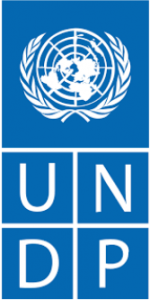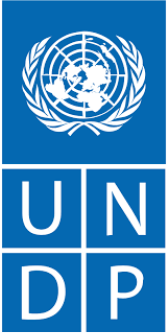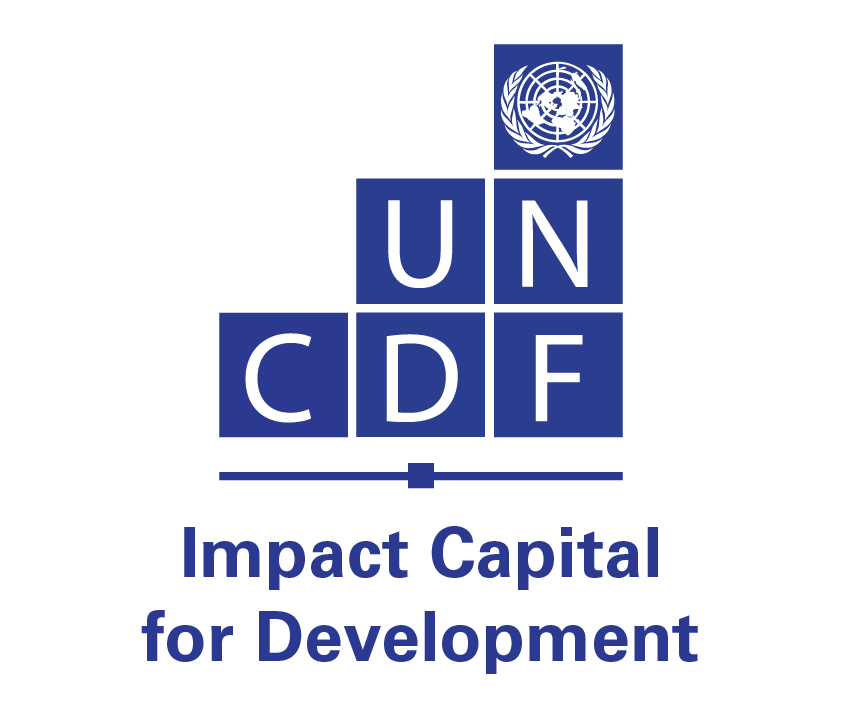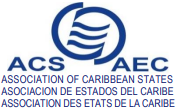Defining The Pathway For Small Island DIGITAL States in the Caribbean

Conference Overview
The Digital Pathways for SIDS 2.0 Conference is a high-level event focused on advancing the digital transformation of Small Island Developing States (SIDS), that will precede the 4th International Conference on SIDS scheduled to take place in Antigua and Barbuda in May 2024. The outcome of this event will be a consolidated and coordinated Caribbean position on Digitalization.
Objectives
The expected outcome would include an initial agreement on key benchmarks and metrics to be achieved by countries and the region in each of the five dimensions with regards to the digital agenda taking into consideration south-south coordination mechanisms, partners, and service suppliers to support these efforts. Finally, this space aims to empower Caribbean governments to effectively address the critical opportunity afforded by digital economy in the broader context of SIDS sustainable development.
The specific objectives of this conference are the following:
- Definition of the SIDS 2.0 concept: the Small Island Digital State
- Digital pathway formulation based on the outcome of the discussions on key elements of the following five dimensions: infrastructure, government, cybersecurity and regulatory framework, economy, and people
- Initial discussions on key benchmarks and metrics for the region.
- Definition of coordination mechanisms and support
- Showcasing of “best practices” for country and country-to-country exchanges and support
Digitalization is a crucial aspect of development for Caribbean Small Island Developing States (SIDS). As Caribbean countries strive to become Small Island DIGITAL States, in the lead up to the the Forth International Conference on Small Island Developing States taking place in Antigua and Barbuda in May, there is a need for a common framework for a quick, efficient and equitable digital transition.
The region has recognized the importance of digitalization for development and its critical role in promoting resilient prosperity, enhancing economic growth, improving access to public services, and fostering innovation and entrepreneurship. Noting the particular vulnerabilities of the Caribbean to natural disasters and other shocks, digitalisation can also assist countries in building relevant resilience. Moreover, it can significantly contribute to expanding financing for development opportunities by promoting the adoption of innovative financing mechanisms such as digital bonds, impact investing bonds, venture capital funds, crowdfunding, and a fund of funds, which can promote private-sector investment, help address the cost and risk challenges associated with financing projects; and ultimately support the realisation of inclusive digital transformation, with a whole-of-society approach.
Most of the nations in the Caribbean region are actively engaged in the digital agenda. Dominica, Grenada, Saint Lucia, St. Vincent and the Grenadines and others are working to increase access to digital services, technologies, and strengthen digital skills. Digitalization efforts in Jamaica, Barbados, Guyana, and Antigua and Barbuda have been focused on enhancing connectivity, promoting digital inclusion, and fostering economic development.
In many countries, citizens wish to see even bolder digital efforts occurring throughout their islands. This requires facilitating an enabling environment for entrepreneurs and policymakers to quicken their digital deployment and exploration. But to truly benefit lives and livelihoods in SIDS, these initiatives must be based on the informed use of digital technology. Special care must be taken to guarantee that no one is left behind or denied access to the potential that digital technology has to offer.
Digitalization
Path to Resilient Prosperity
IMPACT
Engagement & Collaboration
This 2-day event will bring together key stakeholders within the Caribbean digital ecosystem. Thus, relevant ministries and experts from twenty-five countries and territories in the Caribbean will be invited; along with participation from key policy makers from the Caribbean, experts from UNDP, CAF and IDB as well as strategic partners like the EU, CDB, IMPACS, CTU, ACS, ELAC, CARICOM and others. The event will create a space for the active engagement of policy makers specialising in digital economy, social innovators, start-ups, private sector investing or interested in investing in digital economy in the Caribbean, academic partners encompassing universities and think tanks, and civil society representatives, particularly NGOs focused on digital transformation, economy and upskilling of youth.
STRATEGIC PARTNERSHIP
Co-Develop
Funding opportunity – Expressions of interest due 24th of May, 2024: Co-Develop, in partnership with IDB, UNDP, and CDPI, is committing up to USD 1 million across four Caribbean Small Island Developing States (SIDS) for government digital use cases using digital public infrastructure approach. Digital use cases tackle specific challenges faced by governments using safe, effective, and interoperable technology, which can lead to, for example reduced processing times to receive passports, improved and accelerated disbursement of climate relief funds, or up-to-date farm registries to improve fertilizer distribution. The funding covers technical assistance, technology, governance, and more. Learn about Co-Develop.
Review: Access the workshop presentation as you begin preparing your application.
Reach out to partners: For technical assistance, contact UNDP, IDB, or CDPI.
CDPI contact: manuel@cdpi.dev
Join the call and share your questions: Co-Develop and CDPI will host a call on Tuesday, 14th May, 13:00-14:00 AST to discuss the opportunity, provide more context on digital use cases and further and to respond.
Register (http://tiny.cc/SIDSFund) for the Zoom call and send questions in advance to lac@codevelop.fund.
Link to submit an expression of interest: Shared Digital Insfrastructure
Keep an eye on core upcoming dates:
- Call With Interested Parties: Tuesday, 14th May, 13:00-14:00 AST
- Expression of Interest: Due Friday, 24th May
- Selected Countries Invited to Submit Application: Due Friday, 31st May
- Complete Application: Due Friday, 28th June
- Selected Countries Announcement: Week of July 15th
Our Panel of Distinguished Speakers
Minister of Digital Transformation, Trinidad and Tobago
Senator The Honourable Hassel Bacchus
Senator the Honourable Hassel Bacchus was appointed as Minister of Digital Transformation, July 12, 2021, after serving as Minister in the Ministry of Public Administration and Digital Transformation from August, 2020. He believes strongly in the values of mutual trust and collaboration with all for the achievement of the Government of the Republic of Trinidad and Tobago’s (GoRTT’s) digital transformation efforts, to build a healthy, sustainable ICT ecosystem for Trinidad and Tobago.
UN Assistant Secretary-General, Assistant Administrator and Director of the Regional Bureau for Latin America and the Caribbean of the UNDP
Michelle Muschett
Michelle Muschett is the UN Assistant Secretary-General, Assistant Administrator and Director of the Regional Bureau for Latin America and the Caribbean of the UNDP. She is a social policy and global development specialist with multisectoral experience in a wide variety of leadership positions, including also having served as Deputy Minister and Minister of Social Development of Panama. Ms. Muschett holds a master’s degrees in public administration from Cornell University, United States; Commercial Law from Externado University of Colombia; and Management of Heritage and Cultural Projects from the Institute for Art and Restauration Palazzo Spinelli, Italy.
Vice-Minister for Policy Coordination in the Ministry of Internal Affairs and Communications, Japan
Mr. Yoshiaki Takeuchi
Yoshiaki Takeuchi, is the Vice-Minister for Policy Coordination, in the Ministry of Internal Affairs and Communications, Japan. After joining the Ministry of Posts and Telecommunications in 1985, he held various positions including director of the Space Communications Policy Division, the Telecommunication Systems Division, the Land Mobile Communications Division, and the Technology Policy Division of Ministry of Internal Affairs and Communications. In addition, He served as Director-General of the Radio Department, Cyber Security, and the Telecommunications Bureau. He has held his current position since 2021. Mr. Takeuchi holds a Degree in Engineering from the Tohoku University.
Our Partners
Key stakeholders within the Caribbean digital ecosystem

Trinidad and Tobago has placed significant emphasis on digitalization as a fundamental driver of economic development and advancement and has the potential to become a Digital Hub for the region. The country’s Digital Transformation Strategy, led by the Ministry of Digital Transformation, is not solely focused on technology, but rather on transforming the way people live, work, and connect, ultimately aiming to enhance lives. Prior to the pandemic, Trinidad and Tobago had already set forth an ambitious ICT policy to foster economic development and advance digital government. The onset of the pandemic provided fresh impetus to further develop the country’s digital ecosystem and enhance its digital government policies.
Trinidad and Tobago has placed significant emphasis on digitalization as a fundamental driver of economic development and advancement and has the potential to become a Digital Hub for the region. The country’s Digital Transformation Strategy, led by the Ministry of Digital Transformation, is not solely focused on technology, but rather on transforming the way people live, work, and connect, ultimately aiming to enhance lives. Prior to the pandemic, Trinidad and Tobago had already set forth an ambitious ICT policy to foster economic development and advance digital government. The onset of the pandemic provided fresh impetus to further develop the country’s digital ecosystem and enhance its digital government policies.

CAF Development Bank is one of the key development actors on digital transformation. For CAF, digitalization is a key tool for the Caribbean region’s economic revival. To this end, CAF has developed several actions and invested around USD 3.7 billion in large-scale projects to improve digital connectivity and contribute to digital transformation for households, businesses and governments in the Latin American and Caribbean (LAC) region.
CAF Development Bank is one of the key development actors on digital transformation. For CAF, digitalization is a key tool for the Caribbean region’s economic revival. To this end, CAF has developed several actions and invested around USD 3.7 billion in large-scale projects to improve digital connectivity and contribute to digital transformation for households, businesses and governments in the Latin American and Caribbean (LAC) region.


The InterAmerican Development Bank (IDB), is supporting the development of digital infrastructure, encouraged innovation in digital services, and promoted digital literacy and skills training among communities. However, to quickly engage in the digital economy, the establishment of effective cybersecurity protocols and systems were not prioritized. As a result, IDB is focusing on addressing increased vulnerabilities, adding salience for protecting cyberspace at the national, sectoral, and organization-specific levels.
The Inter-American Development Bank (IDB), is supporting the development of digital infrastructure, encouraged innovation in digital services, and promoted digital literacy and skills training among communities. However, to quickly engage in the digital economy, the establishment of effective cybersecurity protocols and systems were not prioritized. As a result, IDB is focusing on addressing increased vulnerabilities, adding salience for protecting cyberspace at the national, sectoral, and organization-specific levels.

The United Nations Development Programme (UNDP) has been actively working with Small Island Developing States (SIDS) in the Caribbean to develop strategies and plans for an inclusive digital transformation with a whole of society approach. The aim of people-centred digital transformation is to build a more open, transparent, and accessible society that leaves no one behind. UNDP’s Digital Strategy 2022-2025 focuses on enhancing connectivity, promoting digital inclusion, and fostering economic development in these countries. By providing neutral, expert, and independent support on diverse aspects for an inclusive digital transformation, UNDP has been instrumental in helping Caribbean countries leverage digital technologies to create more inclusive and resilient societies.
The United Nations Development Programme (UNDP) has been actively working with Small Island Developing States (SIDS) in the Caribbean to develop strategies and plans for an inclusive digital transformation with a whole of society approach. The aim of people-centred digital transformation is to build a more open, transparent, and accessible society that leaves no one behind. UNDP’s Digital Strategy 2022-2025 focuses on enhancing connectivity, promoting digital inclusion, and fostering economic development in these countries. By providing neutral, expert, and independent support on diverse aspects for an inclusive digital transformation, UNDP has been instrumental in helping Caribbean countries leverage digital technologies to create more inclusive and resilient societies.

FAQs
The purpose and expected outcome for this conference includes an initial agreement on key benchmarks and metrics to be achieved by countries and the region in each of the five dimensions with regards to the digital agenda taking into consideration south-south coordination mechanisms, partners, and service suppliers to support these efforts. Finally, this space aims to empower Caribbean governments to effectively address the critical opportunity afforded by digital economy in the broader context of Small Island Digital States sustainable development.
The outcome of this High-Level conference will ensure a consolidated and coordinated Caribbean position on Digitalization. The specific objectives of this High-Level conference are the following:
- Definition of SIDS 2.0 concept: the Small Island Digital State.
- Digital pathway formulation: based on the outcome of the discussions on key elements of the five dimensions: infrastructure, government, cybersecurity and regulatory framework, economy, and people.
- Initial discussions on key benchmarks and metrics for the region.
- Definition of coordination mechanisms and support.
- Showcasing of “best practices” for countries and country-to-country exchanges.
No. This is a High-Level Closed-Door forum
Yes, please contact Michelle Seeraj at UNDP TT for more information on this (michelle.seeraj@undp.org).
All materials will be available via this website. Visit all partner social media platforms for notices of when materials become available.




